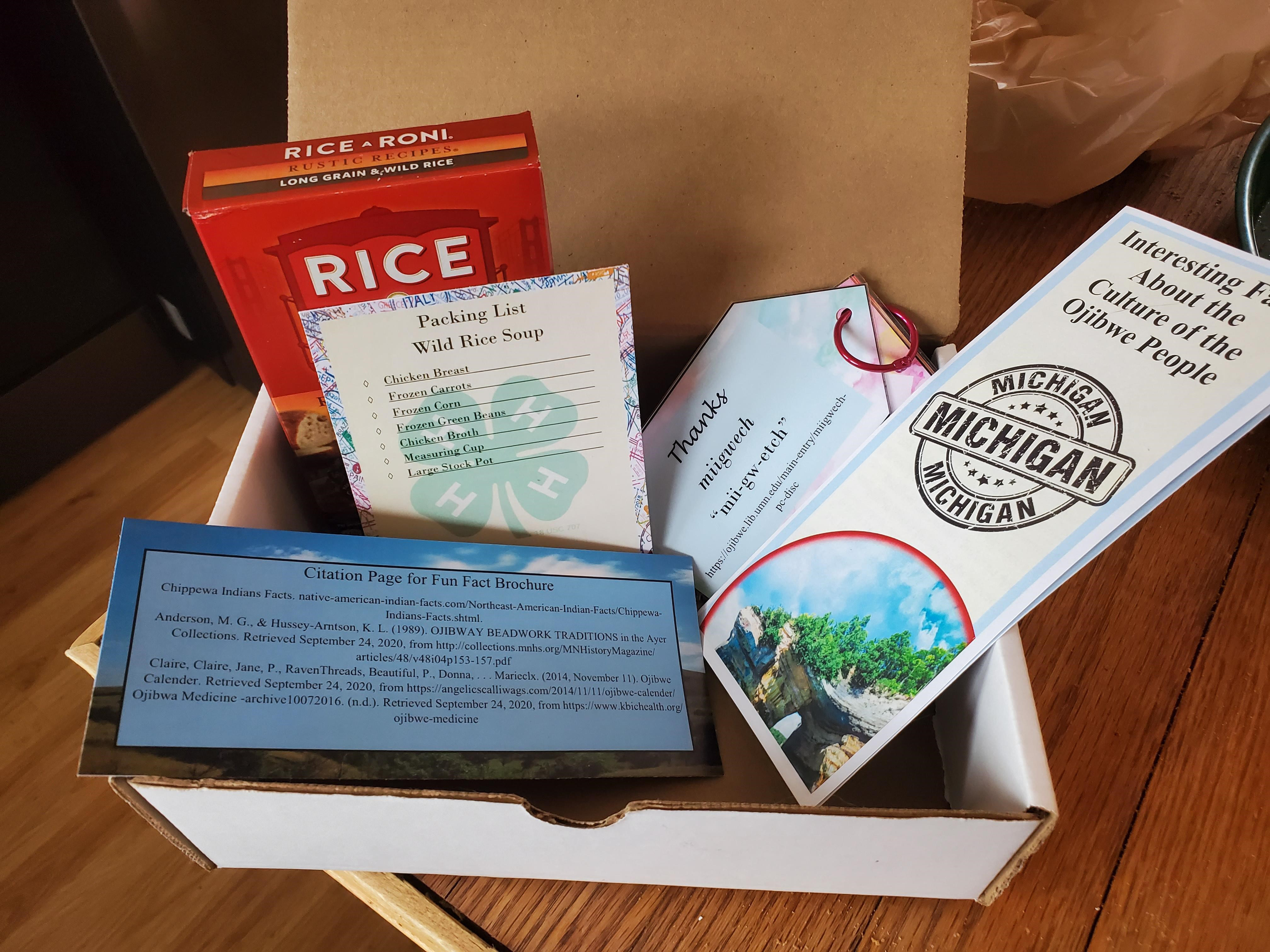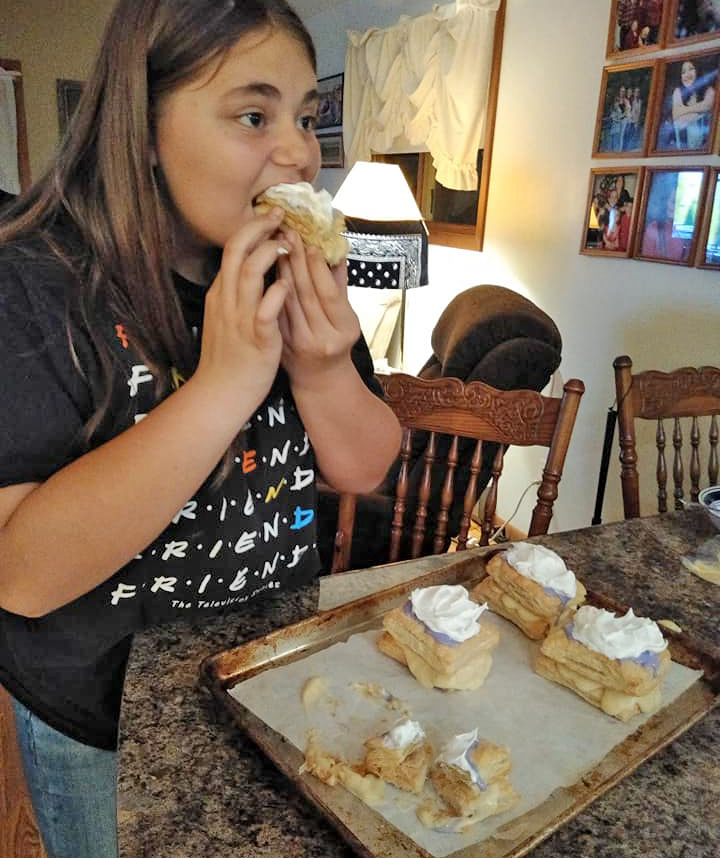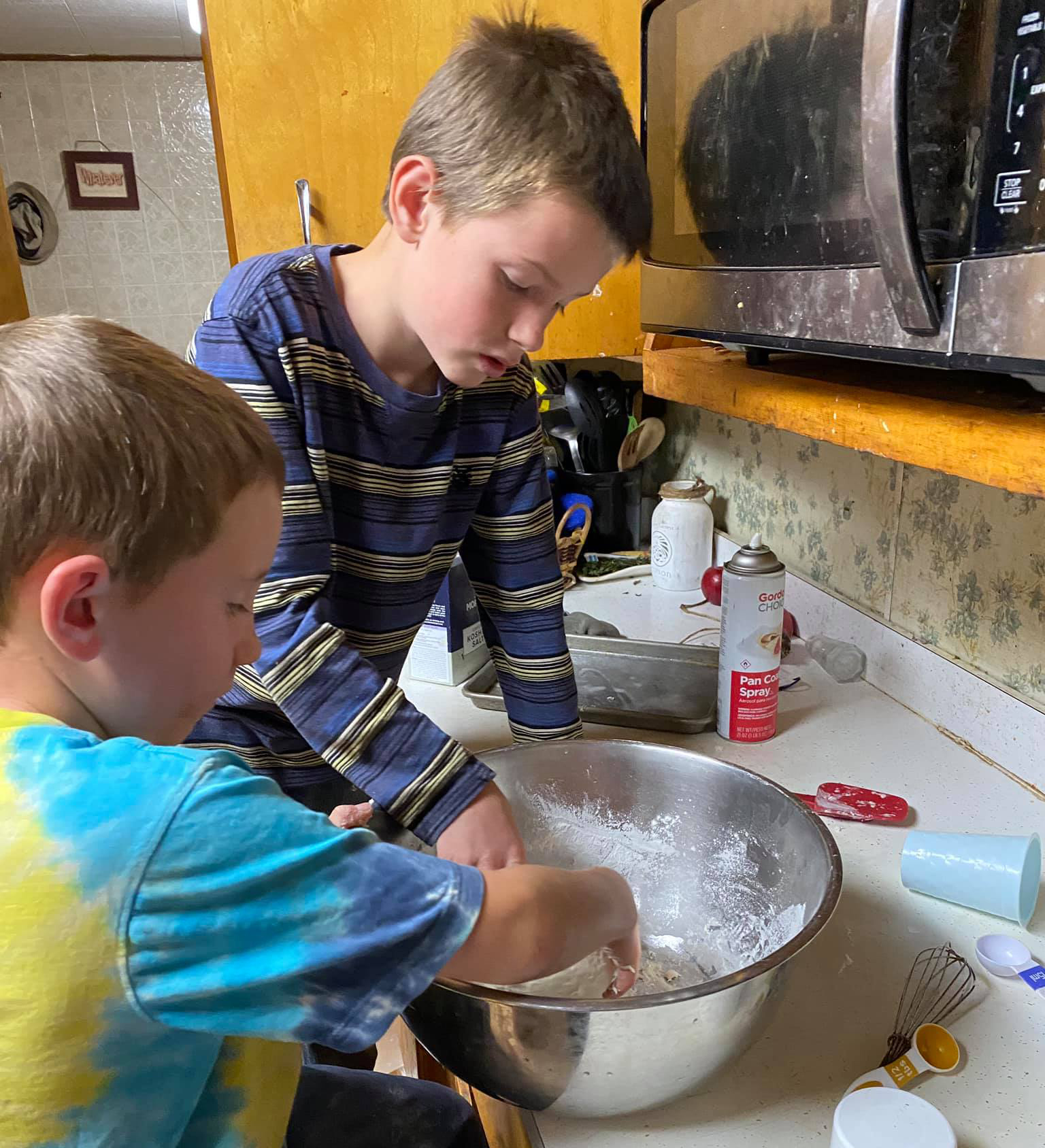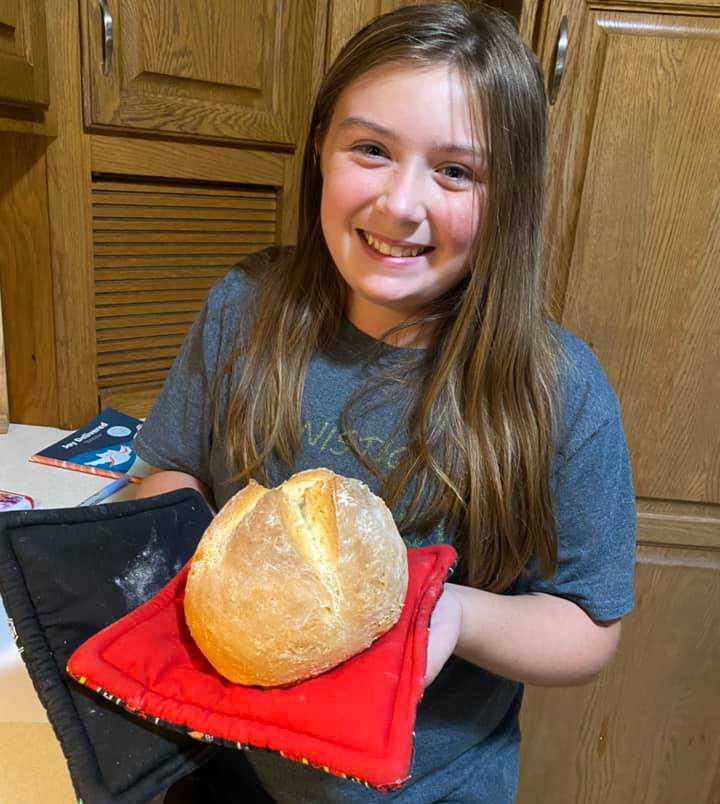Passport kitchen program enriches cultural knowledge
Participants enjoyed most recipes and allowed families to explore their own heritage while learning about other cultures.

Michigan 4-H program coordinator Melissa Preston offered a cultural engagement program to eight counties in northern Michigan during October 2020. Youth and families had an amazing opportunity to learn and prepare foods from near and far cultures. Preston shares her love for learning about cultures with youth and families in an educational way.
Passport Kitchen was a four-week Special Interest Club (SPIN) where 31 youth participants and families received a themed travel box each week. The boxes were themed around culture and included a recipe, a luggage tag, which taught cultural language, a packing list, which was the ingredients you had to gather, and a fun fact brochure about the cultural focus for that week. Participants’ boarding pass consisted of the link to a video and a photo of someplace important from that country or culture, which could be used as a bookmark. Each box also included a specialty ingredient or item that was more difficult to find, like rice paper, piping bag, lemon juice and wild rice. The participants traveled to Laos, Ireland and Netherlands and learned about Ojibwa culture.
Enjoy Preston’s reflection on this engaging program.

D’Ann (D): Why did you decide to offer this program to youth in your area?
Melissa (M): I noticed there was a lot of negative media on cultural difference, “good versus bad”, “us versus them” connotations so I wanted to bridge that divide in a way that was respectful. I have a diverse group of friends and I have learned so much from them about their cultures. Since cooking was a really popular program for youth during this stay-at-home experience in my community, I thought I could ask my friends to share their cultures through food. I have taken away a lot from learning about their experiences. This was a way to get youth engaged and have fun with one aspect of culture. I also wanted to be protective of indigenous culture, appreciating without appropriating and I knew we could do that through food.

D: What were some lessons learned during the SPIN club?
M: Be prepared for a need to cap your registration. Consider the time to pack the boxes and the cost of shipping. Since my county is facing economical hardship due to the COVID-19 pandemic, it was important to me to keep costs low for families. Also, think about recipes you are willing to offer and what is age appropriate. I found this was perfect for ages 8 to 14—the activities kept them engaged. For older youth, you could go more in-depth on hardships faced by these cultures. The more we can expose youth to diverse cultures, the better they will navigate life.
D: What was the impact of the program?
M: This program allowed youth to reflect on culture, especially their own. Many European Americans often lose connection with their home country. This program invited them to reconnect with family roots and see someone else’s culture with new eyes.

D: Do you have future plans for this program?
M: I am currently working with colleagues in Kalamazoo County to expand, calling the next session Passport Kitchen II. This series may have four or six cultural locations with the intent to record videos and post program supplies on the Michigan 4-H Global Cultural website for others to access and utilize materials at any time. Another suggestion was to hold a virtual meeting for all participants to share their experiences with each other at the conclusion of the series.
D: What advice do you have for others thinking about a cultural program like this?
M: Make it as engaging as possible for the participants. The more fun you include, the better. When I sent email communications, I formatted them to sound like a travel agent. It doesn’t have to be boring. Also, don’t be afraid to ask dumb questions. You don’t know what you don’t know until you ask. I would ask if cultural information was appropriate to include in each box. My friends would tell me if they didn’t want something included or worded a different way for clarity.

D: Anything else you would like to share?
M: This was a passion project for me and to be able to share my friends’ uniqueness in a time when cultural diversity needed to be celebrated. The program allowed my participants to take the time to step back and appreciate the family time it created. I loved every minute of this project. I calculated 250 hours of preparation, but it was all worth it when I saw the kids showing so much joy. I even had a participant give a presentation to their class at school on the experience.
Youth want to learn about culture, we just need to provide them with the avenue to explore it in a respectful way. If you have questions about how to gain assess to Passport Kitchen materials, contact Melissa Preston at prest142@msu.edu.
4-H grows successful youth through positive developmental relationships. If you would like to learn more, visit the Michigan 4-H website. To learn more about youth development programs, contact D’Ann Rohrer at drohrer@msu.edu or 231-845-3361, or our civic engagement leadership team at MSUE.DL.4HLeadership@msu.edu.
Find other global educational opportunities on the Michigan State University Extension Global and Cultural Education website. For more information about 4-H learning opportunities and other 4-H programs, contact your local MSU Extension county office.



 Print
Print Email
Email


